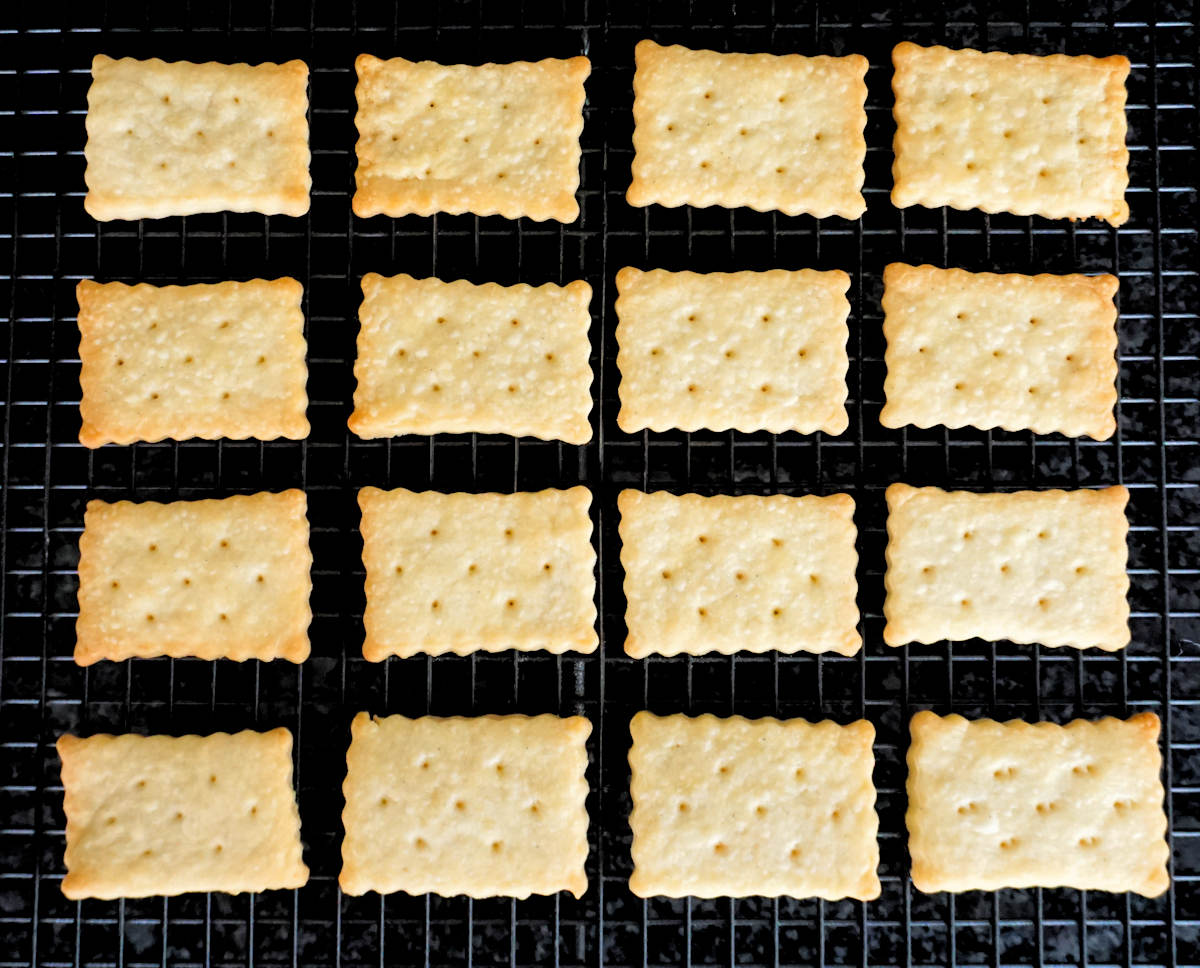Petits beurre are French plain butter biscuits, unfairly unfashionable and driven out by Speculoos. Bring back petits beurre to every café!

What are petits beurre?
Petit beurre, the plainest, simplest biscuits everyone loves. They are cut with a stamp; otherwise achieving the characteristic wavy edges and dimples in the centre would be impossible.
‘Petit beurre’ means literally ‘little butter’. But the French language being what it is, it sounds much more pleasant than the literal translation.
It should rather translate to ‘butterkins’ ‘butterlings’ or ‘butterettes’, whichever option catches your fancy.
They are plain but delicious, and the perfect biscuit to perch next to a cup of tea or coffee. Why, oh why in all the cafes have they been forced out by bolshy Speculoos?
Petits beurre and I go back
I remember Petits Beurre sold in dainty little packets of five, for probably not more than a few pence, when I grew up in Poland.
Considering there was not much else to choose from in the field of snacks in those days, my fondness for them might be coloured by nostalgia.
Those quintessentially French biscuits were, it appears, inspired by English biccies. In the late 19th century Louis Lefèvre-Utile of the LU biscuit factory invented the recipe, the shape and the stamp.
He soon found followers though and so we are now familiar also with German Leibnitz cookies made by Bahlsen or Lazzaroni that pretend to have been invented in Italy.
Not a shortbread
Sometimes they are called ‘shortbread from Nantes’, which is where LU factory was founded and these days churns out over 9,000 tonnes Petits Beurres a year.
But they are nothing like shortbread: not crumbly enough, not powdery in taste and not as sweet. They are to me the original biscuit: plain, hard, with "four ears and forty-eight teeth" as the marketing slogan goes.
The teeth and ears, incidentally, you should bite off one by one until you’re left with a smooth-edged square to bite into next – there is no other imaginable way of approaching a PB.
How to make petits beurre
My recipe is perhaps not entirely true to the original, but it is delicious for the addition of cream instead of water and quite a bit reduced in sugar for the consideration of our teeth.
Whether you melt the butter with the sugar and liquid like in the recette nantaise or mix everything together like I do, the pastry needs chilling to relax (don’t we all?) and to keep shape after baking.
When out of the fridge again, I always leave it in the kitchen to thaw a little – it won’t obliterate the effects of chilling – to make it easier to roll out.
Roll it out quite thin, about 2-3mm (1/8 inch) and then stamp away! Don’t forget to press both the stamp and the cutter itself into the pastry – it will help extract the biscuit.
They don’t rise much so don’t have to be spaced out much on the baking tray. Baking takes 12-15 minutes, depending on how coloured you like them.
I’m of the quite pale orientation but then no wonder: I adore raw pastry and cookie dough.
If you want to make a small batch of the biscuits at a time, the rest of the dough will freeze well for another occasion.
Now all you need is a cuppa!
More biscuit recipes
My replica of Fox’s Crunch Creams, crunchy biscuits, are similar to petits beurres but the cutting method is far simpler: shape a cookie dough sausage and slice it with a knife!
Of French provenience too are Breton butter biscuits (sablés bretons or galettes bretonnes), so delicate they melt in the mouth.
Another copycat recipe: milk chocolate digestive biscuits, just like McVities, only better. Can you make the ultimate dunking biscuits at home? Here’s how, and it’s easy.
More French dessert recipes
French classic madeleines, made with egg whites, clarified butter and lemon zest. Have your own Proustian moment!
Authentic French macarons with lemon and chocolate filling are a bit of an effort to make, but they are one of the loveliest desserts that ever existed.
Croquants aux amandes are French almond cookies. ‘Croquant’ means ‘crunchy’ and these biscuits are wonderfully brittle, softening a little as they keep.